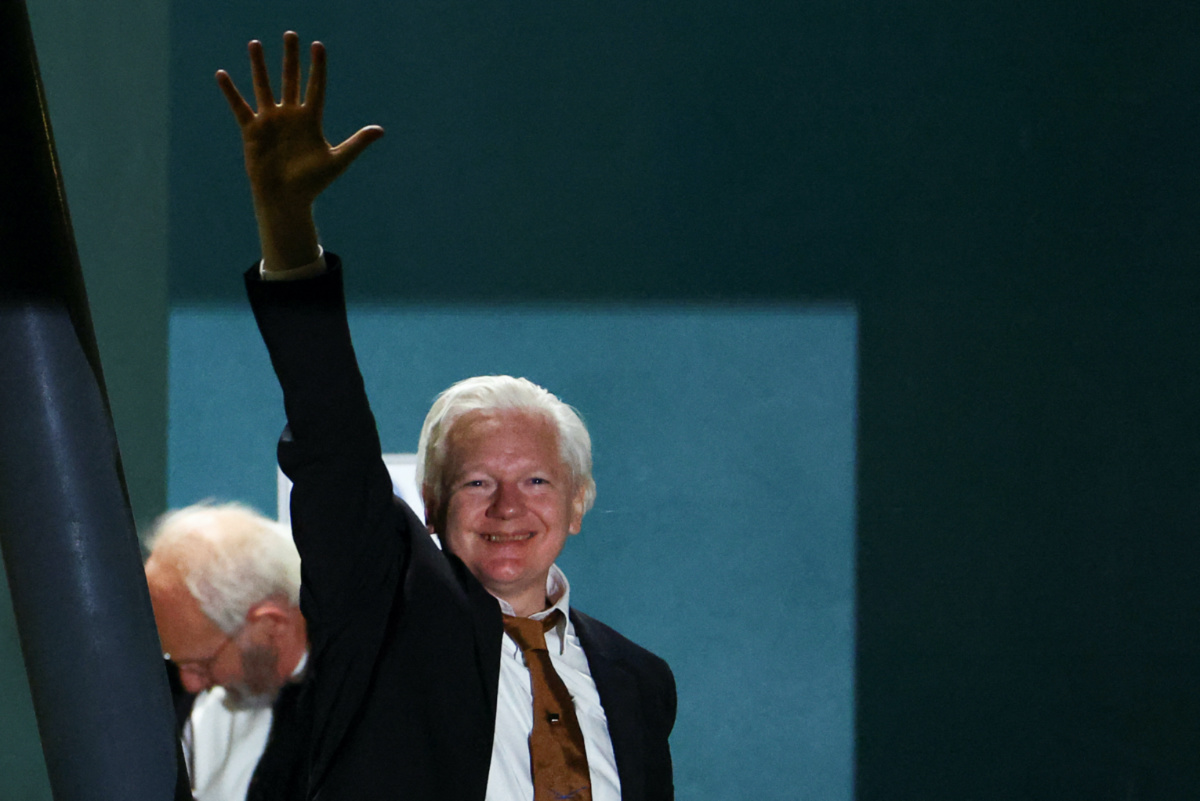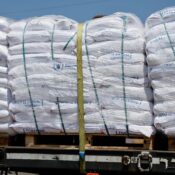
After a US settlement, WikiLeaks founder Julian Assange was welcomed home in Australia as a free man.
Julian Assange, the founder of WikiLeaks, was greeted with joy upon his arrival in Australia on Wednesday following his guilty plea to breaking American espionage law, which freed him from a protracted 14-year court struggle.
Just after 7:30 p.m. (0930 GMT), Assange stepped off a private jet at Canberra airport, waving to the media and fans who were waiting. He then gave his wife, Stella, a passionate kiss and lifted her off the ground.
Before he and his legal team entered the terminal building, he gave his father an embrace.
Since his release, Assange has been silent in public. He also skipped the Wikileaks press conference held in a Canberra hotel, where Stella Assange stated that it was premature to predict her husband’s future actions.
“Julian needs time to recover, to get used to freedom,” she stated. “I want Julian to have that space to rediscover that freedom.”
She went on to say she thought her spouse would get a pardon eventually.
After Assange’s jet landed, Australia’s Prime Minister Anthony Albanese, who has been campaigning for Assange’s release for years, said he had spoken with him over the phone.
Albanese said during a previous press conference, “I had a very warm discussion with him this evening, he was very generous in his praise of the Australian government’s efforts.”
“The Australian government stands up for Australian citizens, that’s what we do.”
With his arrival, Assange’s ordeal comes to an end after he fought extradition to Sweden on charges of sexual assault and to the United States, where he was facing eighteen criminal counts, for more than five years in a British high-security jail and seven years in asylum in the Ecuadorean embassy in London.
These accusations sprang from one of the biggest breaches of secret material in American history—the publication by WikiLeaks in 2010 of hundreds of thousands of classified U.S. military documents about Washington’s wars in Afghanistan and Iraq.
Assange entered a guilty plea to one criminal count of conspiring to obtain and disclose classified national defense documents during a three-hour hearing earlier in the U.S. territory of Saipan. However, he stated that he had thought his actions were protected by the First Amendment of the U.S. Constitution, which guarantees free speech.
“Working as a journalist I encouraged my source to provide information that was said to be classified in order to publish that information,” he stated in court.
“I believed the First Amendment protected that activity, but I accept that it was…a violation of the espionage statute.”
Chief U.S. District Judge Ramona V. Manglona accepted his guilty plea while pointing out that Assange’s activities did not appear to have caused any personal harm to anyone, according to the U.S. authorities.
She released Assange because of time already served in a British jail, and she wished him an early happy birthday. Assange turns 53 on July 3.
HONORED AS A HERO
Assange’s supporters celebrated him as a hero for exposing war crimes and supporting free speech, while the US government saw him as reckless for putting its operatives in danger by releasing their names.
Outside the courtroom, Assange’s American attorney, Barry Pollack, told reporters, “We firmly believe that Mr. Assange never should have been charged under the Espionage Act and engaged in (an) exercise that journalists engage in every day.”
He said that WikiLeaks would keep with its job.
Jennifer Robinson, Assange’s Australian and British attorney, expressed gratitude to the Australian government for facilitating Assange’s release. John Shipton, his father, expressed his relief to Reuters.
While waiting for his son in Canberra, Shipton remarked, “That Julian can come home to Australia and see his family and do the ordinary things of life is a treasure.”
“The beauty of the ordinary is the essence of life.”
According to documents filed with the U.S. District Court for the Northern Mariana Islands, Assange has consented to enter a guilty plea to a single criminal charge.
Prosecutors claimed the U.S. territory in the western Pacific was selected because of its closeness to Australia and his aversion to visiting the U.S. mainland.
Australian politicians who had advocated for his release expressed apprehension regarding his guilty plea in the United States, arguing that he was a journalist wrongfully convicted of his duties.
That sets a very concerning precedent. As an independent legislator who oversaw a parliamentary group that supported Assange, Andrew Wilkie remarked, “It is the kind of thing we’d expect in an authoritarian or totalitarian country.”
Assange hid out in the Ecuadorian embassy in London for seven years while he battled extradition, and he also spent more than five years in one of the most brutal jails in Britain, according to Judge Manglona.
With Stella, one of his lawyers, he had two sons while stranded at the embassy. In 2022, they tied the knot at London’s Belmarsh Prison.
All Categories
Recent Posts
Tags
+13162306000
zoneyetu@yahoo.com



